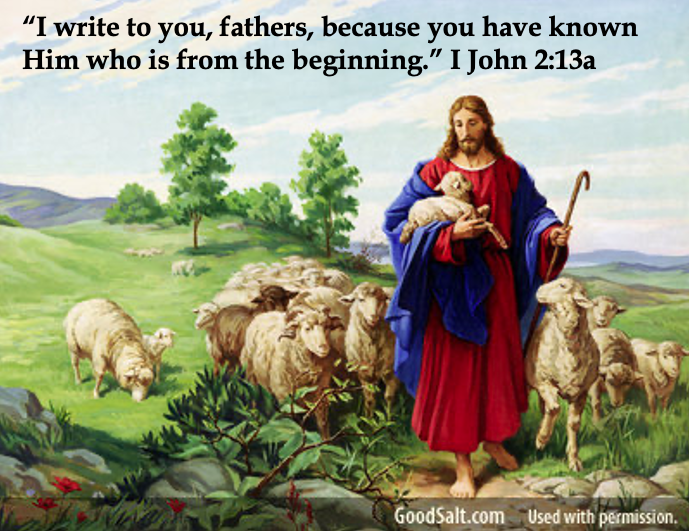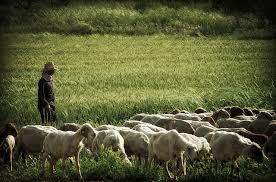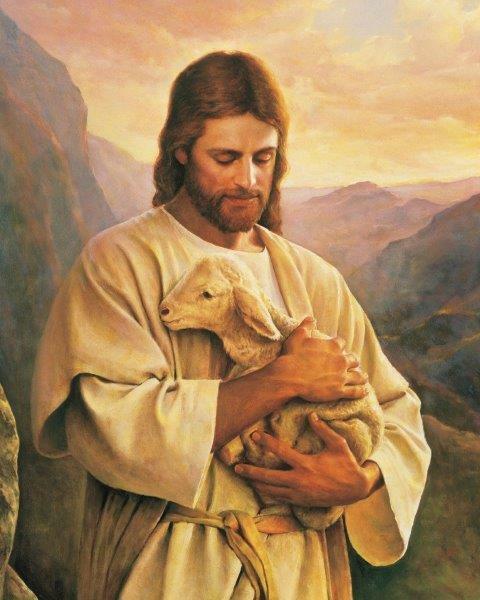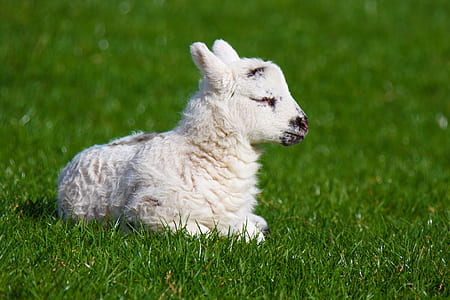“I write to you, fathers, because you have known Him who is from the beginning.” I John 2:13a
Since the book of I John is primarily about fellowship with God (1:3-4), the apostle John’s main concern is that his readers’ fellowship with the Lord continues. With that said, he knows that believers in Jesus have three enemies which can jeopardize their fellowship with God: sin (1:6-2:2), the world (2:15-17), and the devil (2:18-25). John also understands and believes that our position in Christ is foundational for victorious Christian living. To prepare his readers (including us) for spiritual warfare, the apostle reviews basic truth about our position in Christ.
Last time John addressed his readers as “little children” who had experienced complete and permanent forgiveness from their heavenly Father (2:12) the moment they “believed in the name of the Son of God,” Jesus Christ (5:13a). This positional forgiveness provides the basis for practical or fellowship forgiveness (1:9). While all who believe in Jesus have positional forgiveness which includes past, present, and future sins (Acts 10:43; Col. 2:13-14), they still need practical forgiveness which is based on the confession of their known sin to maintain or restore their fellowship with God (I John 1:9; cf. Matt. 6:12, 14-15).
For example, when parents decide to have children, they already know their children will commit sins. They are aware that their children will be imperfect. But this does not prevent the parents from choosing to have the children. And when the child is conceived, an eternal relationship begins. Nothing, including death, can change the fact that this child will always be the child of his or her parents. So, in a sense, since this relationship will last forever, the child has positional forgiveness for all his or her future sins. And based on this positional forgiveness, the parents are predisposed to fellowship-forgiveness whenever their child sins against them but also chooses to come back to them and seek their forgiveness. God gave us positional or relationship forgiveness when we became His forever children through belief in Jesus Christ (John 1:12; Ephes. 1:7; Col. 2:13-14). Based on that, He will always be “faithful” to grant us fellowship-forgiveness when we confess our sins to Him (I John 1:9; cf. Matt. 6:12, 14-15) to restore our closeness to Him.
Next John reminds his readers of what he just wrote about in I John 2:3-11: “I write to you, fathers, because you have known Him who is from the beginning.” (I John 2:13a). As “fathers,” John’s readers “have known Him who is from the beginning.” The words “Him who is from the beginning” could refer to either God the Father or Christ; “the distinction was not important to John. His readers knew both.” 1 John uses a verb and tense (egnōkeite) we saw earlier in 2:3-4. When the perfect tense is used with a stative verb like “to know,” it means to know intensely or intimately. 2 What this suggests is that as “fathers” his readers have come to know God more intimately which implies they have reached the stage of keeping His commandments (cf. 2:3). 3 There is a big difference between knowing about a person and knowing him intimately.
Why does John use the term “fathers” to describe this experience? As “fathers” they “have known” the Eternal One (“Him who is from the beginning”). Older people know people that go way back. In this case, all the way back to eternity past. God’s “beginning” really has no beginning. It will take all of eternity for us to begin to get to know God because He is infinitely greater than us.
Notice the progression: “little children” (teknia) or “little born ones” experience complete forgiveness from their heavenly Father (2:12). Experiencing God’s forgiveness is one of the first things a new believer appreciates about his or her salvation. 4 This complete forgiveness invites the new believer to get to know God more intimately (2:13). “We all begin as children—both physically and spiritually. And babies get to know their daddies. New Christians come to know God as Father.” 5
One of the most important weapons a Christian can have going into spiritual battle is knowing Christ more intimately. We get to know Christ better by spending time with Him and obeying Him. Jesus said, “He who has My commandments and keeps them, it is he who loves Me. And he who loves Me will be loved by My Father, and I will love him and manifest Myself to him.” (John 14:21). Observe the progression in this verse – “has… keeps… loves Me.” Before we can “keep” Christ’s commandments, we must “have” them. To “have” Jesus’ commandments, we must spend time with Him to be aware of what He has said. When a believer “keeps” or obeys the Lord’s commandments, God the Father and God the Son will “love” him or her more intimately and Jesus will “manifest”or reveal more of Himself to them.
In Revelation 2, the same author who wrote I John writes to a church whose members had lost their initial love for Jesus. Christ commends this church for their hard work, perseverance, and discernment of false teaching and teachers (2:2-3). But the one thing He had against them is stated in the next verse. “Nevertheless, I have this against you, that you have left your first love.” (Revelation 2:4). The order of words is emphatic in the original language; the clause could be translated, “Your first love you have left” (tēn agapēns sou tēn prōtēn aphēka). 5
While this church had excelled in their service for Christ and their orthodoxy, they had left their “first love.” This refers to their original love and devotion to Jesus. They were doing the right things now, but not with the same love and devotion for Jesus that they had in the beginning of their Christian lives.
This can happen to any church or individual Christian. We start out passionate in our love for Jesus considering all He did for us in saving us from all our sins. But as the years pass by, we can easily shift from passionate love for our Savior to more of a program mentality whereby we function out of duty instead of devotion to Christ. We go through the motions, but our heart is not connecting to the Lord like it was in the beginning of our Christian lives. We can become so familiar with the teachings of the Bible that we become less sensitive to what God is saying to us. Familiarity can produce apathy in our Christian lives.
What was Jesus’ counsel to these Christians who lost their initial love and devotion for Him? “Remember therefore from where you have fallen; repent and do the first works…” (Revelation 2:5). Christ is telling them (and us) to go back and do the things we were doing when we were passionately in love with Jesus. For me that would mean spending time alone with Him, listening to His still small voice as I read and meditate on the Bible. Or going on walks through the woods and reciting memory verses from the Bible. When I stop doing these life-giving works with Jesus, my love for Him lessens and can grow cold.
This is especially dangerous when I am serving Christ because Satan does not want me to do that. So, he intensifies his attacks. If am not spending time alone with Christ, I am more vulnerable to failure because I have lost the intensity of my love for the Lord and can be easily led astray.
In closing, I want to share some thoughts from Dr. David Anderson: “One of my favorite paintings of Jesus is called ‘The Good Shepherd.’ It pictures Christ as a shepherd out in a pastoral setting, surrounded by sheep. But what interests me most about this painting is not the Shepherd as much as the sheep. The Shepherd is holding one little lamb in His arms; a couple more are nudging up against His robe. Others are lying in a cluster not far away. Further back in the scene we see some sheep grazing. But it’s the sheep far from the Shepherd who concerns me. Some are looking this way and others that way. They are not at all close to the Shepherd. These are the sheep which are in danger of the wolf and the lion. These are the sheep which could fall off a cliff and break their bones. If you were doing a self-portrait to touch up this painting, where would you place yourself in the picture?” 7
Prayer: Heavenly Father, thank You for John’s words of encouragement in his epistle which prepare us for spiritual battle with our enemies. Like little children, we have experienced Your complete and permanent forgiveness through faith in Christ alone as our Savior so we can approach You now as our Father. Because of Your amazing forgiveness, we can get to know You and Your Son more intimately as we spend time with both of You and learn to obey Your commandments. Knowing You on a deeper level is one of the most important weapons against spiritual attacks. Some of us are like the sheep in the painting who are young or hurting and so we have drawn close to You to be held in Your arms close to Your heart. Others of us are close to You and nudging You to focus on our needs. There may be those of us grazing on the riches of Your grace while being close to You. Some of us are resting in green pastures or being refreshed by the stilled waters You have led us to. There are those of us who have wandered farther away from You. We can still see You and take glimpses of You at times, but we are more captivated by our surroundings. We want to explore the world unaware of its many temptations and dangers. And then there are those of us who have wandered so far from You that we have lost sight of You. Little do we know the hidden dangers that are waiting to pounce on us and devour us. Wherever we may see ourselves in this image of You as our Good Shepherd, may each of us know You are always available to help us if we will take that first step toward You. It may be a cry for help or a simple, “Please forgive me, Lord.” You are waiting to hear from us, and You are eager to be our Good Shepherd. Thank You Lord God. In the mighty name of our Lord Jesus Christ, we pray. Amen.
ENDNOTES:
1. Zane C. Hodges, The Bible Knowledge Commentary Epistles and Prophecy, Editors John F. Walvoord and Roy B. Zuck (David C. Cook, 2018 Kindle Edition), Kindle Location 3677.
2. David R. Anderson, Maximum Joy: I John – Relationship or Fellowship? (Grace Theology Press, 2013 Kindle Edition), pg. 74; cf. K. L. McKay, “On the Perfect and Other Aspects in the New Testament Greek,” Novum Testamentum, Vol. 23, Fasc. 4 (Brill: 1981), pp. 289-329.
3. Zane C. Hodges; Robert Wilkin; J. Bond; Gary Derickson; Brad Doskocil; Dwight Hunt; Shawn Leach; The Grace New Testament Commentary: Revised Edition (Grace Evangelical Society, Kindle Edition, 2019), pg. 591.
4. Tom Constable, Notes on I John, 2022 Edition, pg. 44.
5. Tony Evans, CSB Bibles by Holman, The Tony Evans Bible Commentary (B & H Publishing Group, Kindle Edition, 2019), pg. 2938.
6. John F. Walvoord, The Bible Knowledge Commentary Epistles and Prophecy, Editors John F. Walvoord and Roy B. Zuck, (David C Cook, 2018 Kindle Edition), Kindle Location 4950. 7. Anderson, pp. 101-102. While I do not believe the picture I have shared with this article, is the exact painting Anderson had in mind, its similarity serves as an adequate substitute.





